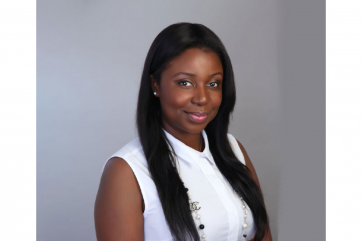Utah Governor Spencer Cox has stirred controversy by discouraging public college presidents from taking stances on contentious political issues. In a recent news conference with the Utah Board of Education, Governor Cox asserted, "I do not care what your position is on Israel and Palestine. I don't. We don't need our institutions to take a position on those things."
Cox's directive places public college leaders in a challenging position, as they often navigate competing demands from students, alumni, and trustees while deciding which issues to engage with publicly. The governor's statement comes amid recent controversies sparked by college presidents' comments on sensitive topics, particularly the Israel-Hamas conflict.

A Call for Silence on Political Matters
Governor Cox went further, suggesting that if college presidents wish to express political opinions, they should consider running for office instead. This move reflects a growing trend of public figures cautioning institutions against wading into politically charged waters.
This directive from Cox follows former Utah Governor Jon Huntsman's accusations against his alma mater, the University of Pennsylvania, for what he perceived as an inadequate statement on the Israel-Hamas conflict. Huntsman even threatened to withhold donations, illustrating the potential financial consequences institutions may face due to the perceived inadequacy of their responses to politically sensitive issues.
READ ALSO: Clash Between Politics And Education At Indiana University Threatens Academic Freedom
Backlash Over Israel-Hamas Statements
The University of Pennsylvania is not alone in facing backlash from donors over statements related to the Israel-Hamas conflict. Several institutions have encountered criticism from constituents who believe their responses either lacked sufficient support for Israel or condemnation of Hamas. Simultaneously, other critics argue that colleges are too swift to back Israel without adequately addressing concerns about the oppression of Palestinians.
Penn President Liz Magill, amidst the controversy, is set to testify at a congressional hearing on antisemitism. She will be joined by the presidents of the Massachusetts Institute of Technology and Harvard University, addressing the House Committee on Education and the Workforce.
Balancing Act for College Presidents
College presidents find themselves in a delicate balancing act, needing to navigate the expectations and demands of various stakeholders while maintaining the institution's commitment to free expression and intellectual diversity. The recent call for silence on political matters adds another layer of complexity to their leadership roles.
Governor Cox's assertion that college leaders should refrain from taking positions on hot-button issues raises questions about the appropriate role of educational institutions in societal debates. Critics argue that silencing college presidents may stifle academic freedom and hinder universities' ability to contribute to crucial discussions.
The Role of Universities in Political Discourse
The debate over whether universities should take explicit positions on political matters is not new. Academic institutions have historically been spaces for critical thinking, debate, and the exchange of ideas. However, as political polarization intensifies, institutions face increasing pressure to take clear stances on sensitive issues.
The recent controversies highlight the challenge of pleasing diverse constituencies, including students, alumni, and donors, who may hold divergent views on politically charged topics. Striking a balance between supporting free expression and addressing the concerns of stakeholders is an ongoing struggle for college leaders.
Utah Governor Spencer Cox's call for public college presidents to abstain from making statements on contentious political issues adds fuel to an already heated debate surrounding the role of educational institutions in societal discourse. As college presidents grapple with competing demands and navigate potential financial repercussions, the broader question of the appropriate intersection between academia and politics continues to be a source of contention.
RELATED ARTICLE: Presidents Of Top US Universities To Address Campus Antisemitism Issues Before Congress








